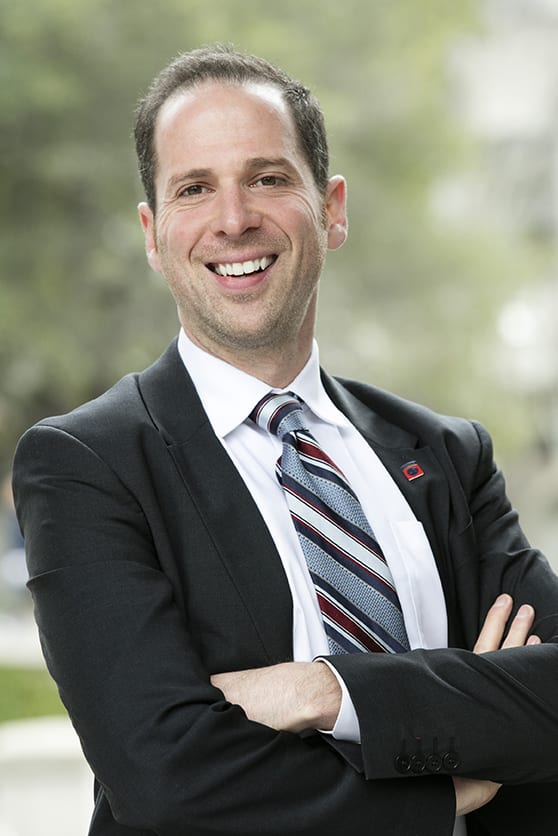The joy of life’s difficult moments

I got the call from my mom around midnight. My dad had fallen—the untreated skin cancer on his face was bleeding, and he’d lost so much blood he’d passed out.
Over the past few years, my brother and I had pled with our dad to see a doctor, but the response was always a litany of reasons why the medical “establishment” couldn’t be trusted. He instead tried a variety of “alternative” treatments.
A vegan for 30 years, my father forced himself to eat raw steak, raw liver, raw eggs, even raw cuts of fat—all doused in cayenne pepper to mask the taste. Then came enzyme pills, up to 70 per day. Eventually he—a man who has never even been drunk–turned to cannabis.
Meanwhile, the tumor on his face grew from the size of a nickel to the size of a dollar bill, covering one cheek and starting to encroach on his eye and ear.
The morning after my dads fall, a hospice nurse gave us a bottle of morphine—a sign to us that the prognosis was dire. But still my dad refused to go to the hospital.
Finally I put on a hoodie, went outside, and tapped on his window with a long stick. My brother told him, “Look, it’s the angel of death, here for you.” That twisted levity finally’ got him to agree to treatment.
We went from medicine circa 1500 to a modern ER where doctors gave him IV antibiotics and three blood transfusions. By the next day, he was feeling better but still confused.
“What is this place where they’re so nice and are taking such good care of us?” he asked. Over the next few days, he continued to marvel at the kindness and care he received—even remarking that he felt like he was in a vacation resort.
We now have Dad 2.0, who recognizes how much doctors have helped him and is trying as hard as he can to stay in the hospital. The prognosis for a cancer this advanced isn’t good, but we enrolled him in an experimental study that, so far, is showing promise. This new dad is even more appreciative of my mom, even more glad to be alive.
This was the irony: In avoiding his biggest fear, my dad manifested it. But when it came true, it was a release—and even brought joy.
How many of us can say we’ve confronted our fears? And isn’t it strange that doing so could bring such pleasure? I started thinking about what I was running away from. How could I run toward my fears? And what would this look like in a business environment?
While my dad was hospitalized, I was getting urgent text messages from an associate with whom I was considering a three-way strategic partnership. We had ironed out the details and were ready to sign—but now he wanted to know the terms I had negotiated with the third partner.
I felt guarded but told myself, “Run toward your fears.”
Resisting the urge to hold back, I shared the details of my deal. With the new information in hand, however, the would-be partner tried—via text message—to renegotiate our terms to be more favorable to him.
I thought my newfound philosophy had backfired. But then I realized that what I had really been afraid of was an awkward conversation that might kill the partnership. So instead of texting back to negotiate, I called and had a frank conversation—during which I learned that the original contract was actually not beneficial to me: I was better off without this partner.
In trying to avoid my fear—losing the partnership—I manifested it. And when it came to pass, it brought joy.
 Ori Brafman is a multiple New York Times bestselling author and a distinguished teaching fellow at Berkeley Haas focusing on improvisational leadership, data science, and artificial intelligence. His new bestselling book, Radical Inclusion: What the Post-9/11 World Should Have Taught Us About Leadership, co-authored with retired General Martin Dempsey, argues that inclusion is no longer a “nice-to-have” but a strategic imperative in today’s rapidly changing world.
Ori Brafman is a multiple New York Times bestselling author and a distinguished teaching fellow at Berkeley Haas focusing on improvisational leadership, data science, and artificial intelligence. His new bestselling book, Radical Inclusion: What the Post-9/11 World Should Have Taught Us About Leadership, co-authored with retired General Martin Dempsey, argues that inclusion is no longer a “nice-to-have” but a strategic imperative in today’s rapidly changing world.
Brafman specializes in organizational culture, employee engagement, business transformation, leadership, and emerging technologies and has advised all branches of the U.S. military, the Obama White House, the National Academy of Sciences, Google, Microsoft, and NATO, among others. Learn more at oribrafman.com.